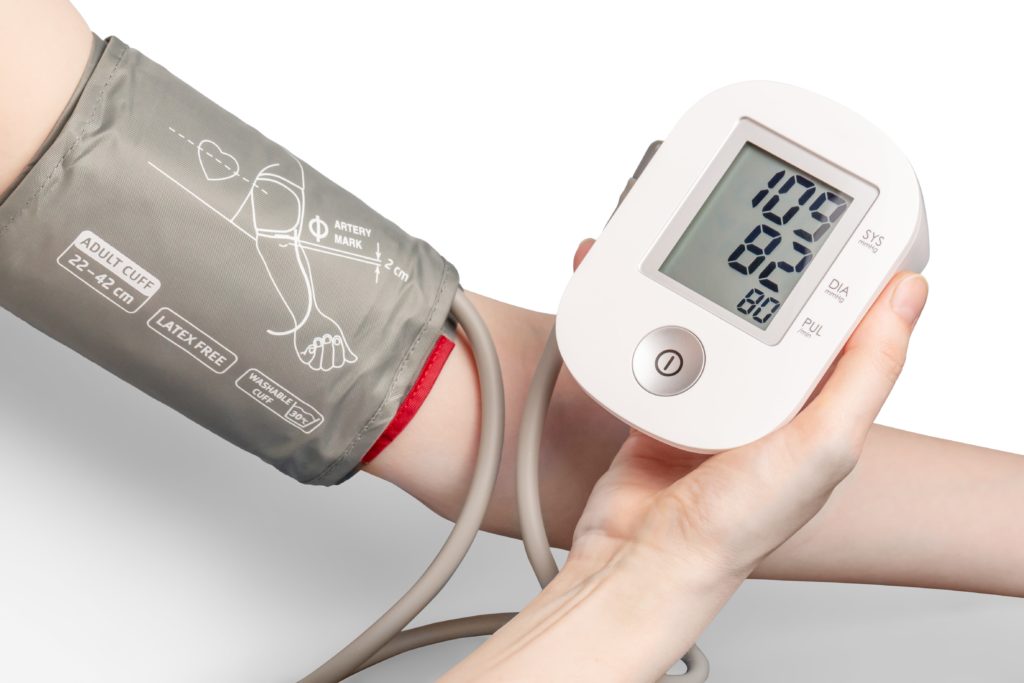Oxford University researchers have found that blood pressure medication is still effective at reducing the risk of a heart attack and stroke in old age, even if blood pressure is in an apparently healthy range.

The research by Professor Kazem Rahimi, who is supported by the NIHR Oxford Biomedical Research Centre and the British Heart Foundation, follows uncertainty about whether blood pressure medication should be given to elderly patients to reduce their cardiovascular risk when their blood pressure is not substantially raised.
This study, the most detailed of its kind, suggests that medication to lower high blood pressure should be an important treatment option to lower the risk of heart attack and stroke, regardless of age and across a wide range of blood pressures.
Prof Rahimi’s findings, which have been published in the Lancet, are being presented at the European Society of Cardiology (ESC) Congress.
Currently, there are different age and blood pressure cut-off points across the world for which doctors can prescribe blood pressure-lowering drugs to older patients. In the UK, it is not recommended that patients over 80 years of age start treatment if their blood pressure is below 150/90 mmHg.
Prof Rahimi and his team now suggest that age-related blood pressure thresholds should be removed from international guidelines so that older patients are considered for, and can benefit from, the protective effects that blood pressure drugs can offer to the heart.
The researchers studied almost 360,000 people aged 21 to 105 years from 51 randomised trials to explore the effects of blood pressure-lowering medication across a range of blood pressure levels on the risk of heart and circulatory diseases.
Participants were separated into five age groups, and then into seven subgroups based on their systolic blood pressure when they were recruited to the study. Participants were followed-up for an average of four years.
Blood pressure-lowering drugs reduced the risk of a major cardiovascular event (heart attack, stroke, heart failure, or death from cardiovascular disease) across all age groups.
In the 75-to-84 year age group, they found that for a 5 mmHg decrease in systolic blood pressure with treatment, the relative risk of having a major cardiovascular event fell by nine per cent; the risk of coronary heart disease by nine per cent; stroke and death from cardiovascular disease by eight per cent; and heart failure by 18 per cent.
The reduction in risk was not affected by the starting systolic or diastolic blood pressure.
Although participants over 85 years of age did not have a significant reduction in relative risk, most likely due to fewer participants in this age group, the absolute risk reduction was generally higher in the older compared to younger age groups. This is expected to be due to a higher percentage of cardiovascular events at the older ages, and suggests those over 85 years could also benefit from blood pressure-lowering for cardiovascular risk management.

Prof Rahimi said: “By understanding the relationships between age, blood pressure treatment and cardiovascular effects, we can refine treatment recommendations to better target those who are likely to benefit from blood pressure-lowering medication.
“We believe that age should be no barrier to prescribing effective treatments. We now want to see guidelines across the world being simplified to remove any differing blood pressure thresholds by age, down to a starting blood pressure of 120/70 mmHg.”
Professor Sir Nilesh Samani, Medical Director at the British Heart Foundation, said: “Our risk of heart attack and stroke increases as we age and this study reinforces the importance of controlling blood pressure to reduce that risk. It shows that there are clear benefits for reducing blood pressure for older patients, even when their levels are not substantially raised.
“This should provide more confidence to doctors in recommending treatment for elderly people with elevated blood pressure. However, the decision to start treatment should always be based on individual circumstances and made jointly with the patient.”
The research was also funded by the Oxford Martin School, and was conducted by researchers from the Blood Pressure Lowering Treatment Triallists’ Collaboration.